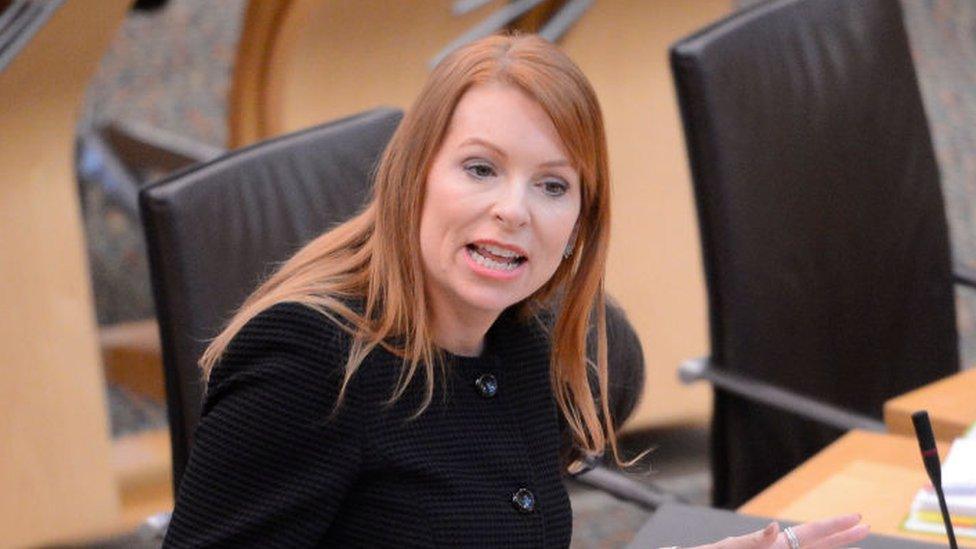MSPs propose more than 150 changes to gender bill
- Published
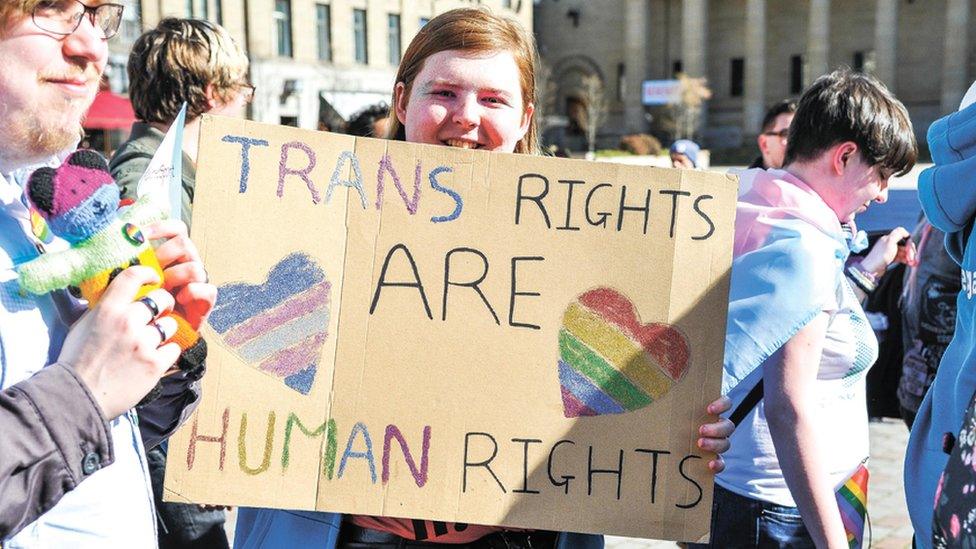
More than 150 changes have been proposed to the new bill that would make it easier to legally change gender in Scotland.
MSPs had until midday on Wednesday to submit amendments to the Gender Recognition Reform bill.
The legislation has already been approved in principle despite the biggest rebellion by SNP members since the party took power.
The proposed changes will now go before Holyrood's equalities committee.
It is expected to vote on them over the next two weeks.
The Scottish government has argued that the current process for changing gender is too difficult and invasive.
The new bill would remove the requirement for a diagnosis of gender dysphoria or medical reports.
It would also reduce the period in which applicants need to have lived in their acquired gender to three months.
One of the most controversial proposals is to lower the minimum age that someone can apply from 18 to 16.
Anyone wanting to change their legal gender will still need to swear an oath about remaining this way for life - with it being a criminal offence to make a false declaration or application - and there would be a three-month "reflection period" before a certificate was issued.
Most Conservatives are opposed to the legislation but Labour, Green and Liberal Democrat MSPs backed the reform bill at stage one.
It was also supported by most SNP members but Ash Regan resigned as a minister and was one of seven SNP members to vote against. A further two abstained.
The biggest rebellion by SNP MSPs since the party took power in 2007.
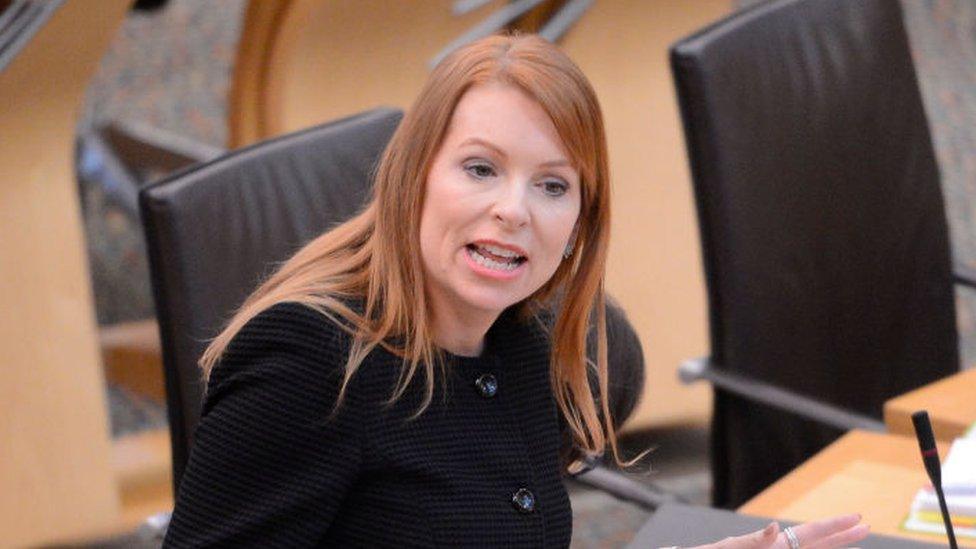
Community Safety Minister Ash Regan resigned over Scottish government plans to make it easier for someone to change their legally-recognised gender
The Scottish government's Social Justice Secretary Shona Robison has responded by proposing new powers to block fraudulent applications and those from people who appear to lack sufficient understanding.
Others proposing amendments include SNP backbencher Christine Grahame who wants 16 and 17-year-old applicants to be required to live in their acquired gender for six months, rather than three.
She also wants under-18s to demonstrate that they have sought appropriate advice.
It is thought the Scottish government is sympathetic to Ms Grahame's proposals and has been in discussion with MSPs from across parties about other changes.
The Greens' Maggie Chapman wants to get rid of all time-related conditions, whereas Conservative amendments seek to retain the current two-year qualification period.
Tory MSPs also want to keep the requirement for a medical diagnosis and for any applicant to be at least 18 years old.
Labour MSPs want the law to make clear that it does not water down existing rights under the UK Equalities Act.
Labour MSP Michael Marra is also proposing that applications should be countersigned by a professional person.
The final number of proposed amendments was 155.
- Published8 December 2023
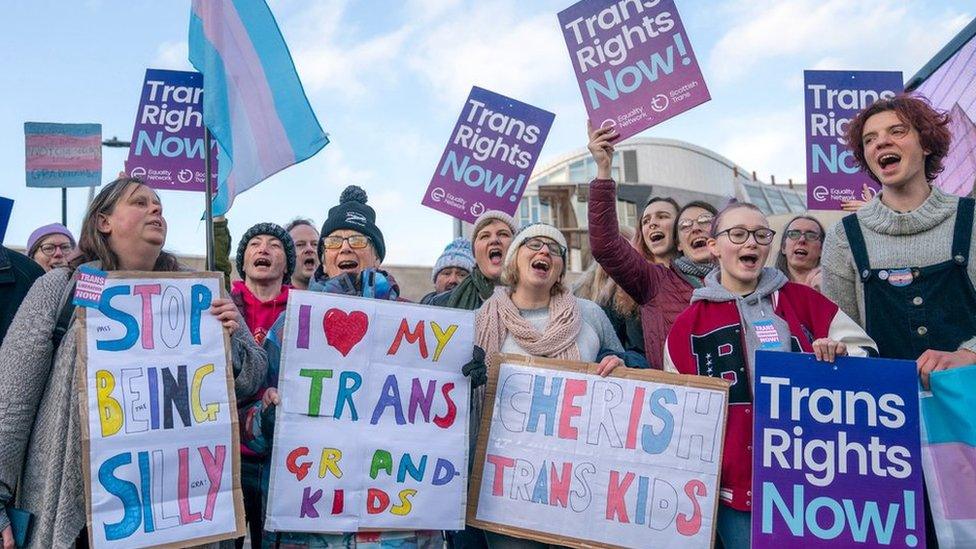
- Published1 November 2022
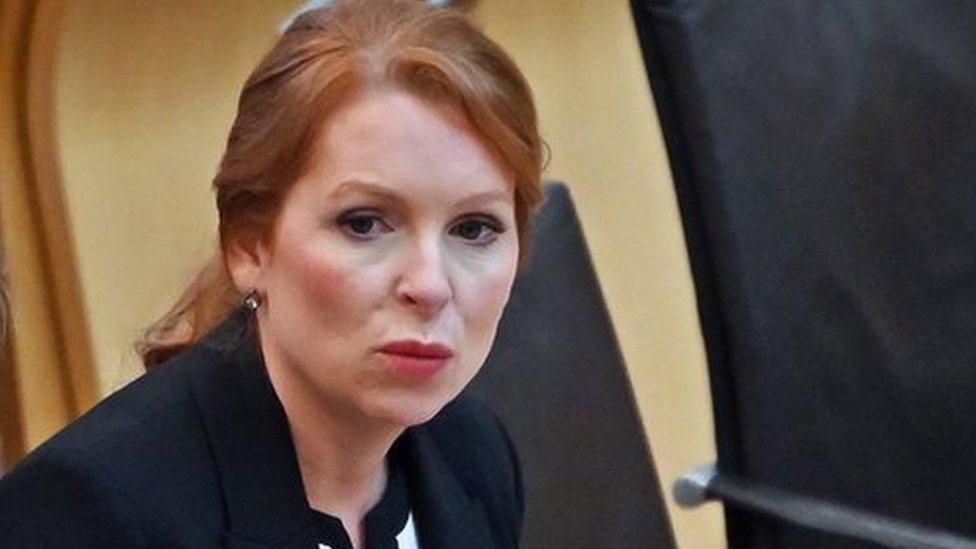
- Published28 October 2022
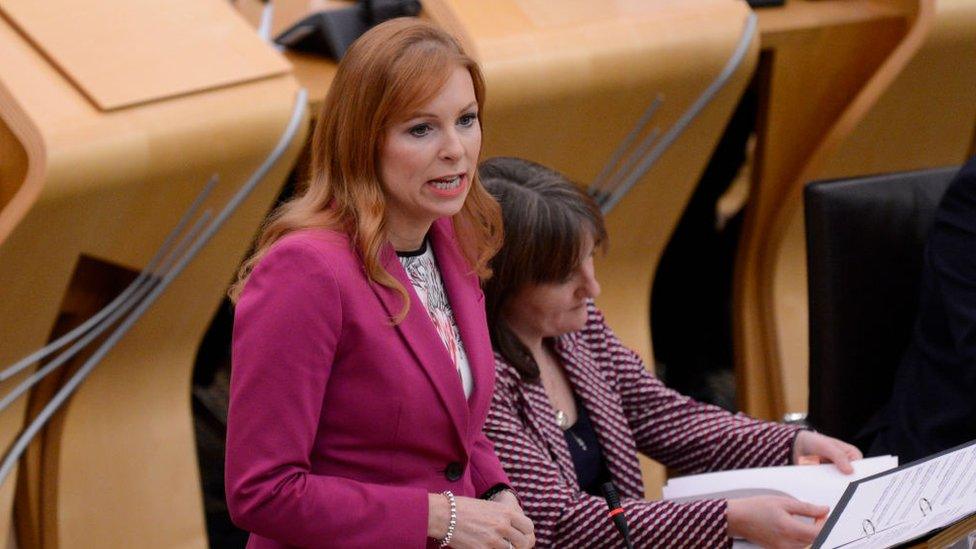
- Published27 October 2022
